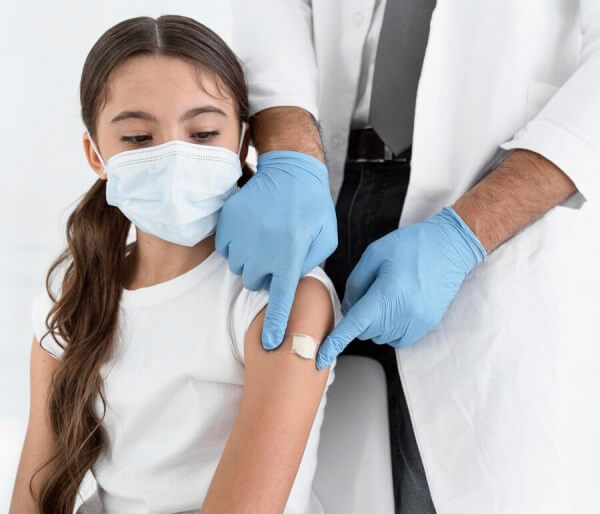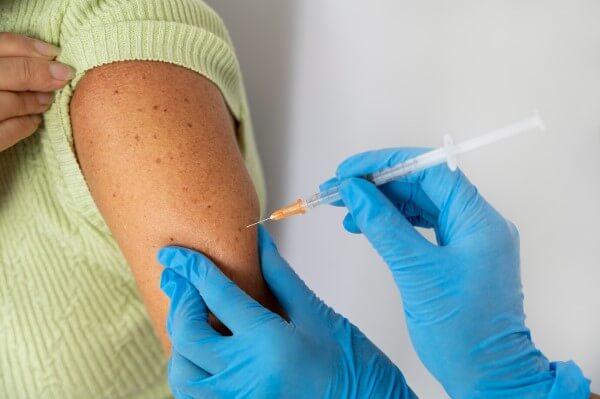Flu Vaccination Service
Please follow the steps below to book to your flu jab

Flu - why is it important to get a Flu jab this year?
Flu vaccination is available every year on the NHS to help protect adults and children at risk of flu and its complications.
Flu can be unpleasant, but if you are otherwise healthy it will usually clear up on its own within a week.
However, flu can be more severe in certain people, such as:
- anyone aged 65 and over
- pregnant women
- children and adults with an underlying health condition (such as long-term heart or respiratory disease)
- children and adults with weakened immune systems
Anyone in these risk groups is more likely to develop potentially serious complications of flu, such as pneumonia (a lung infection), so it’s recommended that they have a flu vaccine every year to help protect them.

Who should get the flu vaccine?
The NHS free flu vaccine for 2023/24 is given to people who:
- are 65 yrs and over
- have certain health conditions- such as diabetes, asthma, COPD, heart, liver,kidney, neurological disease, learning disabilities, without a spleen, obesity.
- are pregnant
- are in a long-stay residental care
- receive a carer’s allowance, or are the main carer for an older or disabled person who may be at risk if you get sick
- live with someone who’s at high risk from coronavirus (on the NHS shielded patient list)
- frontline health or social care workers
Find out more about who should have the flu vaccine.
65 and overs and the flu vaccine
You are eligible for the flu vaccine this year (2023/24) if you will be aged 65 and over on March 31 2024 – that is, you were born on or before March 31 1956. So, if you are currently 64 but will be 65 by March 31 2024, you do qualify also.
Where to get the flu vaccine
You can have your NHS flu vaccine at:
- a local pharmacy offering the service
- your midwifery service if they offer it for pregnant women
If you have your flu vaccine at a pharmacy, you don’t have to inform your GP – we send them a secure email linked to your GP records by your NHS number once you have the jab with us.

How effective is the flu vaccine?
Flu vaccine is the best protection we have against an unpredictable virus that can cause unpleasant illness in children and severe illness and death among at-risk groups, including older people, pregnant women and those with an underlying medical health condition.




Studies have shown that the flu vaccine will help prevent you getting the flu. It won’t stop all flu viruses and the level of protection may vary, so it’s not a 100% guarantee that you’ll be flu-free, but if you do get flu after vaccination it’s likely to be milder and shorter-lived than it would otherwise have been.
There is also evidence to suggest that the flu vaccine can reduce your risk of having a stroke.
Over time, protection from the injected flu vaccine gradually decreases and flu strains often change. So new flu vaccines are produced each year, which is why people advised to have the flu vaccine need it every year too.
Read more about how the flu vaccine works.

Flu vaccine side effects
The best time to have a flu vaccine is in the autumn, from the beginning of September to end of November, but don't worry if you've missed it, you can have the vaccine later in winter. Ask your Pharmacist.
The flu vaccines used in the national programme have a good safety record.
Most adults can have the injected flu vaccine, but you should avoid it if you have had a serious allergic reaction to a flu vaccine in the past. Read more about who shouldn’t have the flu vaccine. You can find out more by reading the answers to the most common questions that people have about the flu vaccine
Each year, the viruses that are most likely to cause flu are identified in advance and the World Health Organization (WHO) recommends which type of flu virus strains to include in the vaccine.
